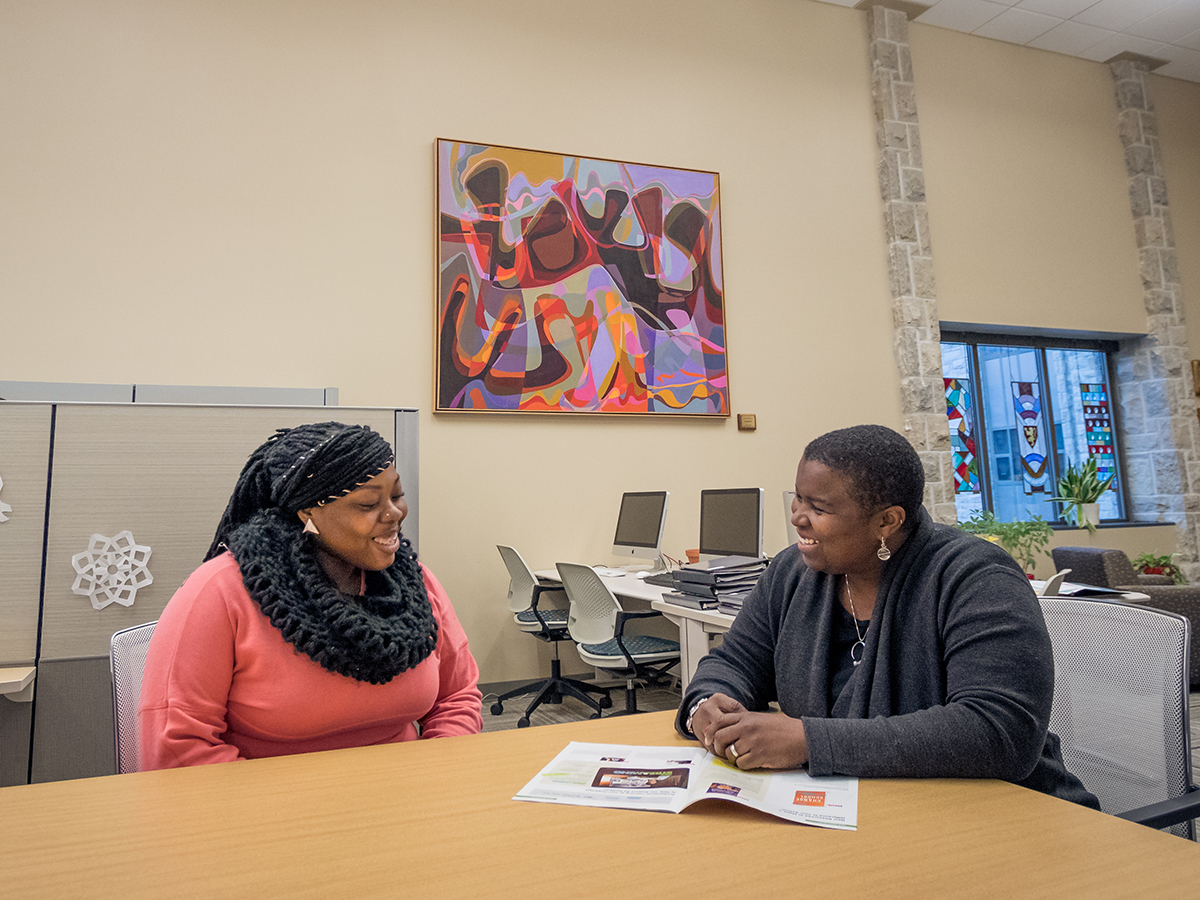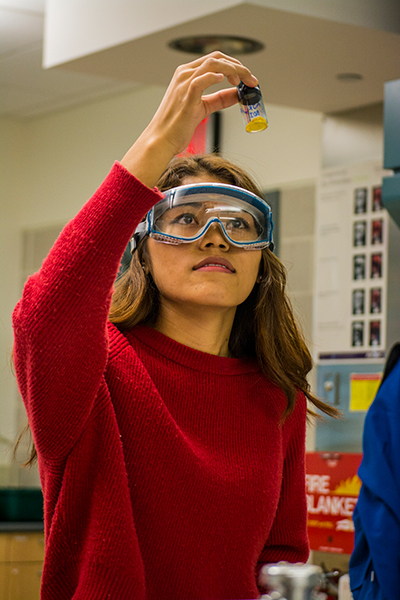Opportunities now, impact for life: St. Olaf McNair Scholars

The TRIO McNair Scholars Program is a graduate school preparatory program funded by the U.S. Department of Education and sponsored by St. Olaf College. The federally mandated goal of McNair is to increase the number of low-income, first-generation, and underrepresented students who participate in undergraduate research, graduate with a B.A., and immediately enter and complete graduate school, obtaining the highest degrees in their fields.
St. Olaf stands out because it is one of just 10 liberal arts colleges among 158 McNair schools nationwide. St. Olaf competes well for funding, driven by the diversity of its students and the opportunities it provides scholars. Yet federal funding hasn’t kept pace with demand. At St. Olaf, 30–40 students apply yearly for 10 open positions. Nationally, funding is 13 percent less per scholar than it was 16 years ago, and the number of schools supported has been cut by 25 percent since 2012. Currently federal funds support 63 percent of scholars’ summer research stipends at St. Olaf.
By expanding support, St. Olaf can safeguard the impact McNair provides participants across disciplines. Sixty-two percent have enrolled in or completed master’s degree programs and 14 percent are pursuing Ph.D.s, outpacing federal program goals of 40 and 10 percent respectively.
For social work and family studies majors, McNair provides qualitative research and policy experience, mainstays of their field, along with earning master’s degrees. As these Oles often go on to serve disadvantaged communities, providing them with the best start now can add to their impact.
These scholars are very self-motivated — some work three-to-four jobs — and get great research done. I want these scholars to catch the eye of that principal investigator in graduate school — as research assistants their tuition will be paid and their networks made tighter with advocates.
— Assistant Professor of Social Work and Family Studies Lisa Moore
“These scholars are very self-motivated — some work three-to-four jobs — and get great research done,” says Assistant Professor of Social Work and Family Studies Lisa Moore. “I want these scholars to catch the eye of that principal investigator in graduate school — as research assistants their tuition will be paid and their networks made tighter with advocates. These opportunities are hard to
find without experience.”

Tiara Davis ’18 wants to help youth access leadership opportunities early in public education, a calling strengthened by her practicum as a social work probation officer in Faribault, Minnesota. With Moore, she began shaping a new line of research to investigate how activism impacts leaders and their families across generations — from the Civil Rights Movement to Black Lives
Matter. It’s a way to see her vocation through new light.
“Many personal issues teens grapple with arise from social ones like poverty, racism, sexism, and family dynamics,” says Davis. “The youth I work with suffer for a lack of opportunities. Giving them chances to lead early can help.”
At the age of eight, pre-med chemistry major Sonam Palmo ’19 and her family left Tibet in search of better schooling in India. Initially living in a refugee camp in Nepal before three years in India, her family moved to the U.S. Now at St. Olaf as a McNair Scholar, she researched with Associate Professor of Chemistry Dipannita Kalyani, and then shadowed providers at a Tibetan hospital in one of the largest Tibetan refugee settlement camps in northern India.
“I know I want to be a doctor because I’m very passionate about medicine and helping other people,” says Palmo. “I wouldn’t be here if I didn’t get help from other people — I want to pass it on.”
“What I love about undergraduate research is that you give students ideas and direction. But a lot of it is them telling you what they’re discovering, what they’re thinking, and posing questions,” says Moore. “I really believe in this type of learning. Every student should have an opportunity to do it.”
You must be logged in to post a comment.